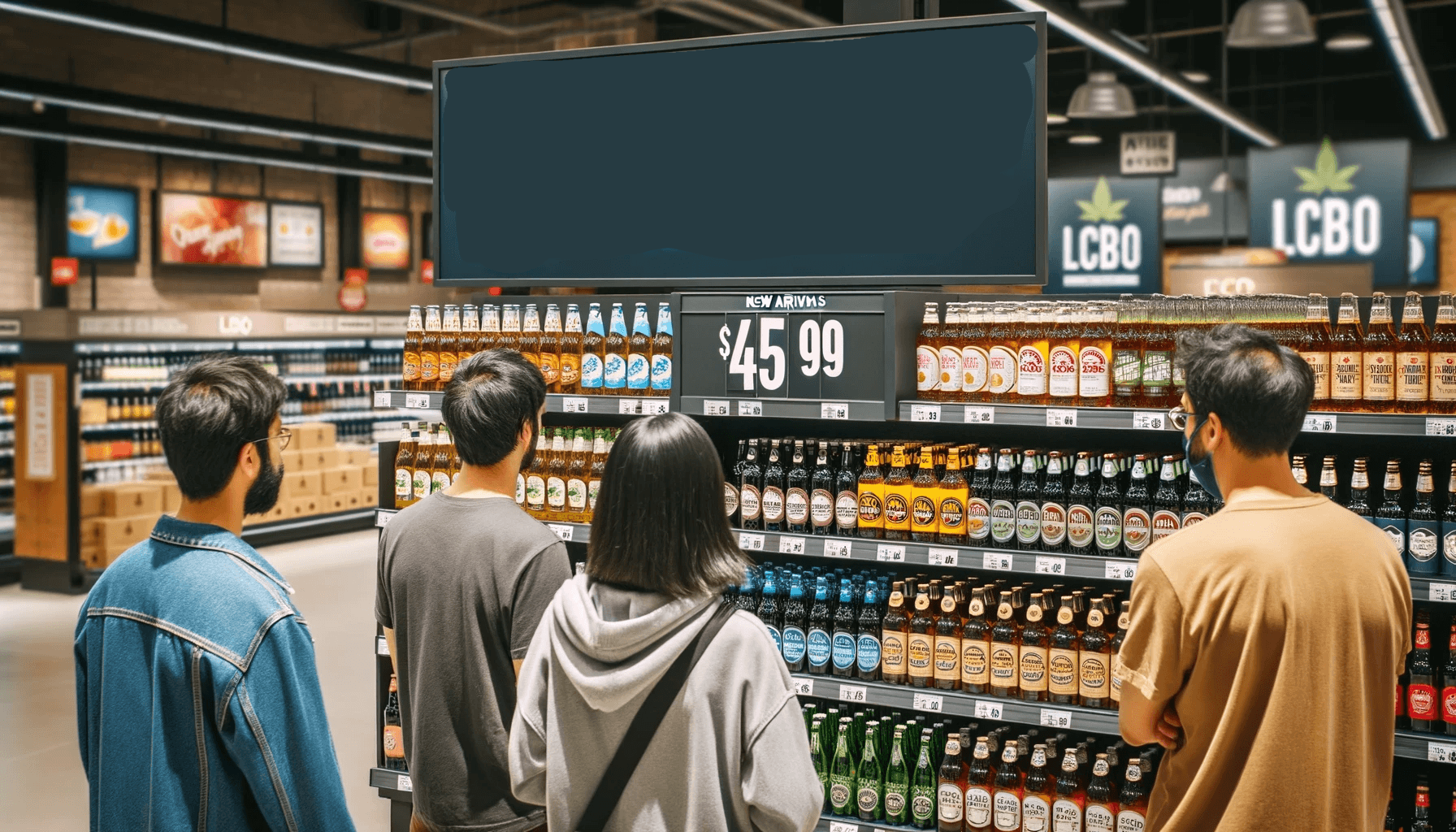Non-Alc Beer opportunity at the LCBO
Non-Alc Beer opportunity at the LCBO
Non-Alc Beer opportunity at the LCBO
LCBO just issued a call for more Non-alc Beer product suggestions and is hinting at a better cost structure.
LCBO just issued a call for more Non-alc Beer product suggestions and is hinting at a better cost structure.
LCBO just issued a call for more Non-alc Beer product suggestions and is hinting at a better cost structure.
Oct 31, 2023
Oct 31, 2023
Oct 31, 2023



The Liquor Control Board of Ontario (LCBO) has recently updated its product needs, showing a keen interest in expanding its range of non-alcoholic beer brands.
On October 30th, 2023, the LCBO announced a new tender for dealcoholized beer and cider, reflecting a response to current market trends and consumer preferences.
A Different Pricing Approach
One notable aspect of this update is the LCBO's decision to skip the standard markup for dealcoholized products. This suggests that suppliers are prompted to submit their most competitive case costs for consideration.
With the removal of cost of service fees or bottle deposit fees for these non-alcoholic products, it's clear that the LCBO is aiming for a more attractive price point for consumers.
What Brands Need to Know
For those brands eyeing this opportunity, the LCBO's New Item Submission System (NISS) is the channel to engage with.
Pre-submissions are slated for January 19th, 2024, and the submission requirements include:
An online application.
A succinct one-page marketing plan.Images of the product and its packaging.
The LCBO is open to a diverse range of products – whether they are domestic, imported, craft, or national brands.
The primary requirement is that the alcohol content remains below 0.5% ABV.
The Liquor Control Board of Ontario (LCBO) has recently updated its product needs, showing a keen interest in expanding its range of non-alcoholic beer brands.
On October 30th, 2023, the LCBO announced a new tender for dealcoholized beer and cider, reflecting a response to current market trends and consumer preferences.
A Different Pricing Approach
One notable aspect of this update is the LCBO's decision to skip the standard markup for dealcoholized products. This suggests that suppliers are prompted to submit their most competitive case costs for consideration.
With the removal of cost of service fees or bottle deposit fees for these non-alcoholic products, it's clear that the LCBO is aiming for a more attractive price point for consumers.
What Brands Need to Know
For those brands eyeing this opportunity, the LCBO's New Item Submission System (NISS) is the channel to engage with.
Pre-submissions are slated for January 19th, 2024, and the submission requirements include:
An online application.
A succinct one-page marketing plan.Images of the product and its packaging.
The LCBO is open to a diverse range of products – whether they are domestic, imported, craft, or national brands.
The primary requirement is that the alcohol content remains below 0.5% ABV.
The Liquor Control Board of Ontario (LCBO) has recently updated its product needs, showing a keen interest in expanding its range of non-alcoholic beer brands.
On October 30th, 2023, the LCBO announced a new tender for dealcoholized beer and cider, reflecting a response to current market trends and consumer preferences.
A Different Pricing Approach
One notable aspect of this update is the LCBO's decision to skip the standard markup for dealcoholized products. This suggests that suppliers are prompted to submit their most competitive case costs for consideration.
With the removal of cost of service fees or bottle deposit fees for these non-alcoholic products, it's clear that the LCBO is aiming for a more attractive price point for consumers.
What Brands Need to Know
For those brands eyeing this opportunity, the LCBO's New Item Submission System (NISS) is the channel to engage with.
Pre-submissions are slated for January 19th, 2024, and the submission requirements include:
An online application.
A succinct one-page marketing plan.Images of the product and its packaging.
The LCBO is open to a diverse range of products – whether they are domestic, imported, craft, or national brands.
The primary requirement is that the alcohol content remains below 0.5% ABV.
